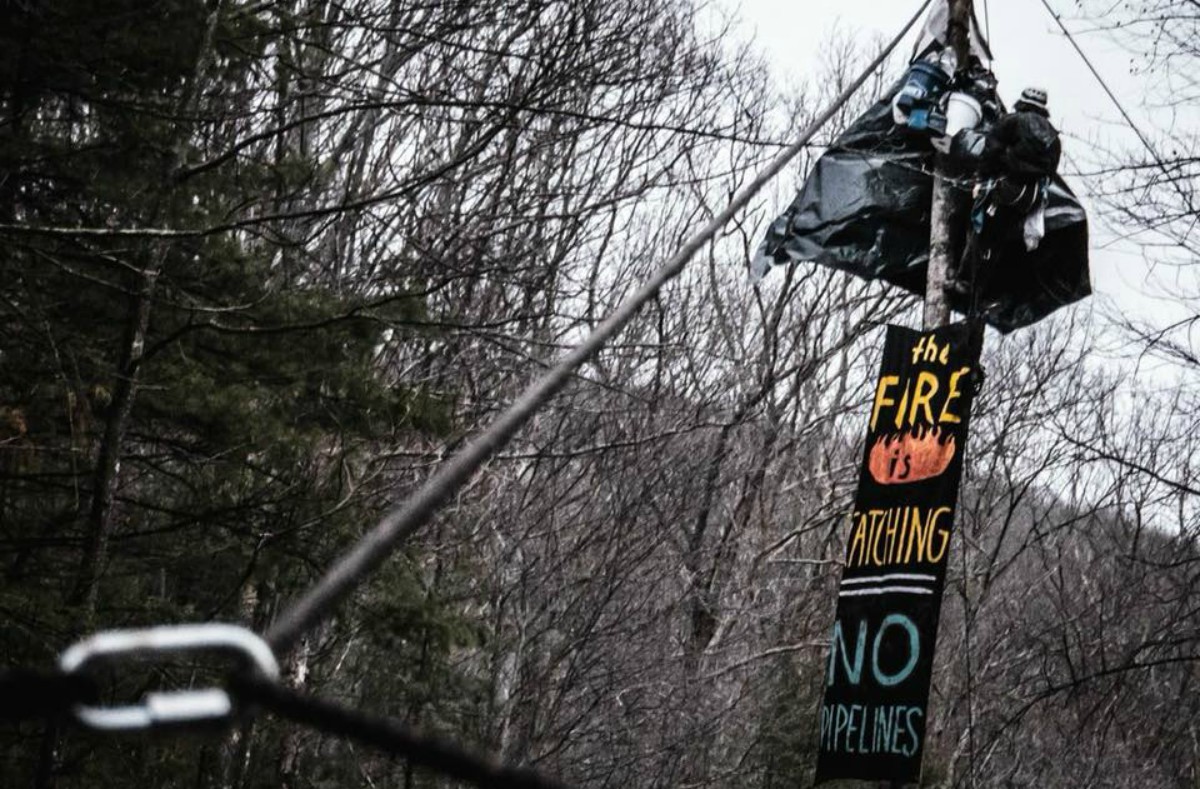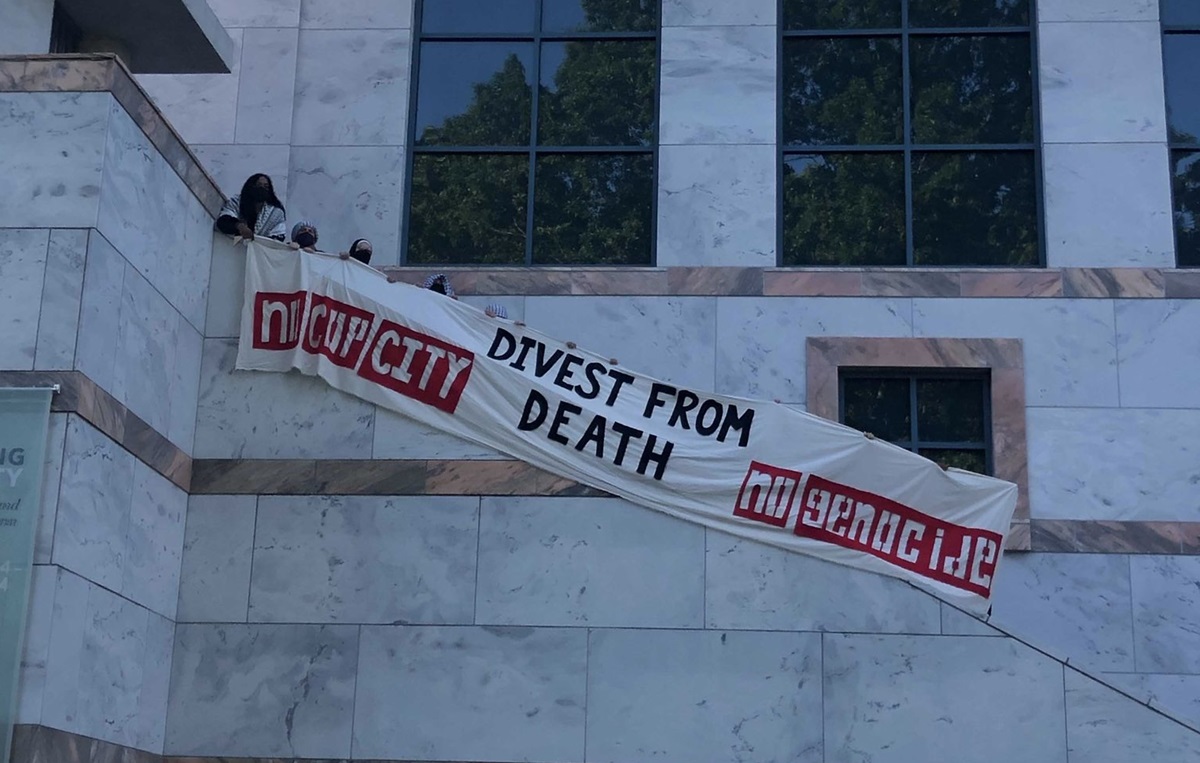Filed under: Anarchist Movement, Capitalism, Environment, Land, Repression, The State

An environmentalist atop a monopod is beginning to be starved out by the builders of the Mountain Valley Pipeline, according to sources on Pocahontas Rd, along the pipeline’s proposed route.
Two people have been sitting in Trees on the Appalachian Trail for 42 days in opposition of the pipeline. Now Further down the trail on Pocahontas Rd in Narrows, VA, a new battle is heating up between law enforcement and environmentalists.
The activists are fighting the Mountain Valley pipeline, a proposed natural gas pipeline that would span approximately 300 miles from northwestern West Virginia to southern Virginia.
At the center of the battle is one anonymous protester atop a monopod “tree” suspended some 50 feet in the air. The tree is some 20 feet behind a forest service gate and sign that reads “Foot travel Welcome. Closed to all public motor use.” Past the monopod, and several miles up the trail, the other tree-sitters remain vigilant. The monopod sitter told us they are there to protect the tree-sitters further down the trail and to make it more difficult for the pipeline to be built.
Local clergy visit monopod, attempt to delivery water 4/6
Local clergy are visiting monopod today. They attempted to deliver water to the sitter in the monopod, but were denied by US Forest Service. They were issued warnings for being on Pocahontas Rd (which USFS has closed on MVP's behalf) and told if they violated the closure order again they would be arrested. bit.ly/supportmvpresistance
由 Appalachians Against Pipelines 发布于 2018年4月6日周五
“This is the road MVP has been working on, and that Law enforcement would take to get to the tree-sitters. MVP is threatening this land and water.” the monopod sitter said.
When asked what they hoped to accomplish, the sitter told me, “I hope this action inspires others to fight whatever corporate state forces are threatening them, because this is happening everywhere.”
When asked what people should know about the resistance, the sitter told me “How long the history of this resistance goes back. This is native land, and pipeline companies everywhere are extensions of that violent colonization.”
Down by the gate were the ‘ham sandwich brigade,’ a group of friends who had been keeping the monopod-sitter company during their time on the mountain. These friends have now been moved 125 ft away from the road, in an attempt to isolate the monopod sitter.
I spoke to one of the sandwiches, who told me that he is there for moral support.
“We are winning.” Sandwich #2 said.
Pipeline contractors have been trading shifts with the Forest Service to provide MVP with a 24/7 watch on the gate, similar to tactics used by DAPL in North Dakota at Standing Rock.
“They haven’t been to the sitters further down the trail since the pod here was erected, which is surprising. These sorts of blockades don’t usually last this long. We’re mostly just for support, we’re not masterminds or anything,” Sandwich #2 said.
Supporters denied by USFS from delivering water to monopod
UPDATE: local clergy were told they COULD NOT deliver water to the monopod sitter, and were issued warnings for being on Pocahontas Rd. The US Forest Service has prevented the delivery of food and water to the access road blockade on Peters Mountain for 4 days. Local clergy are attempting to provide humanitarian supplies to the monopod sitter.bit.ly/supportmvpresistance#NoMVP #NoACP
由 Appalachians Against Pipelines 发布于 2018年4月6日周五
As of April 8th 2018, the anonymous activist has been in the monopod tree for twelve days. Law enforcement have blocked off Pocahontas Rd, and are issuing citations to clergy and concerned Virginians who try to give food or water to the monopod-sitter. Yesterday, the road closure was extended to 125 ft off the road, making the trip up to the monopod a whole lot trickier.
The Forest service has been shining bright lights on the monopod during the nighttime. Live streams show MVP contractors shaking the monopod ropes, which could result in serious injury or death to the tree-sitter.
I asked the monopod sitter what concerned people should do if they have a gripe about this pipeline.
“There’s not just one tactic or one strategy. When I started, I couldn’t have imagined this. People who aren’t sure what to do should reach out, because trying to do stuff alone is hard. Direct action is really important. Appeals to authority won’t get us what we need,” the sitter said.




